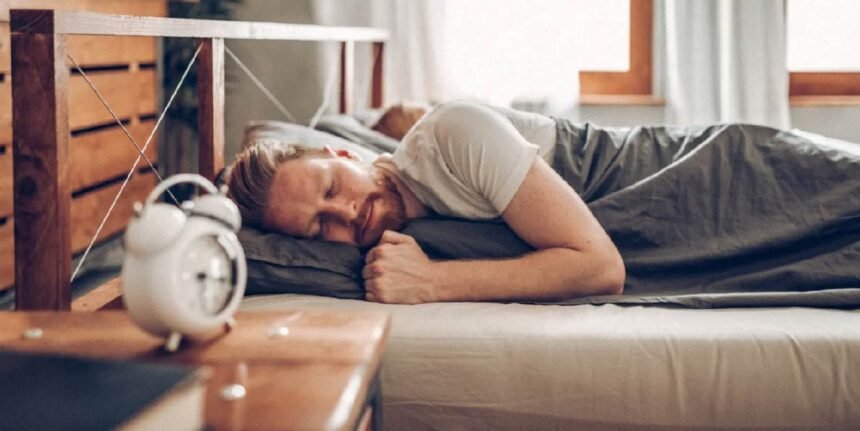For people struggling with sleep issues, apps and wearable devices claim to track sleep cycles, measure rest quality, and even suggest lifestyle changes. While these tools can be helpful, they are not always the full answer. Many patients discover that sleep apps give data but leave out something more important—the human expertise of a sleep doctor.
A sleep doctor, also called a sleep medicine specialist, goes beyond surface numbers. By combining medical knowledge, diagnostic testing, and years of clinical experience, they can uncover serious conditions like sleep apnea, narcolepsy, and insomnia—issues a phone app alone may miss. This raises an important question: are sleep apps enough, or do you still need the expertise of a doctor to truly fix your sleep?
The Appeal of Sleep Technology
Problem – Sleep Apps Promise Easy Fixes
Sleep tracking apps have exploded in popularity. They use smartphone sensors or wearables like smartwatches to monitor movement, heart rate, and noise. These apps often present results in colorful graphs that label sleep stages and overall rest quality.
The problem? Many users assume this data is completely accurate. But without medical context, apps can mislead or oversimplify what’s really happening at night.
Problem – Wearables Can Misinterpret Sleep Data
Even advanced devices have limits. A smartwatch may detect tossing and turning but cannot measure brain activity or oxygen levels—two critical markers for conditions like sleep apnea. This means apps might label restless nights as “poor sleep” without identifying the true medical cause.
What a Sleep Doctor Provides That Apps Cannot
Solution – Comprehensive Medical Evaluation
A sleep doctor begins with a full history, asking about sleep patterns, lifestyle, and related health conditions. They consider factors that apps cannot measure, such as stress, medication use, or hormonal imbalances.
Solution – Diagnostic Sleep Studies
Unlike apps, doctors use polysomnography—a detailed overnight study that records brain waves, breathing, oxygen levels, and heart rhythms. These tests can confirm conditions like obstructive sleep apnea or restless legs syndrome, which no app can diagnose reliably.
Solution – Personalized Treatment Plans
Sleep doctors don’t just provide numbers. They design treatments tailored to each patient, which may include CPAP therapy, behavioral therapy, medication, or lifestyle adjustments. Apps can only offer generalized tips, not individualized care.
The Hidden Risks of Relying Solely on Sleep Apps
Problem – Overlooking Serious Health Conditions
Headaches, fatigue, and loud snoring may seem minor when tracked by an app. But in reality, these can be signs of life-threatening sleep apnea. Without professional testing, patients risk missing critical diagnoses.
Problem – Misleading Data Creates False Security
Some apps suggest a user is getting “deep sleep” when in fact they may have repeated breathing interruptions. This false reassurance delays proper medical evaluation and treatment.
Problem – Increased Anxiety From Sleep Tracking
Ironically, many patients report sleep anxiety after using apps. Constant tracking creates pressure to achieve “perfect sleep scores,” which may worsen insomnia and stress.
When to See a Sleep Doctor Instead of Just Using Apps
Red Flags That Require Professional Help
Patients should consult a sleep medicine specialist if they notice:
- Loud, chronic snoring with pauses in breathing
- Excessive daytime sleepiness despite long sleep hours
- Nightmares, sleepwalking, or unusual behaviors at night
- Headaches or high blood pressure linked to poor sleep
The Value of Early Detection
By seeking help early, patients can avoid long-term risks like heart disease, stroke, depression, and memory loss. A sleep doctor provides both diagnosis and treatment strategies that technology alone cannot.
How Sleep Doctors and Technology Work Together
Solution – Using Apps as a First Step
Sleep apps are not useless—they can help patients recognize patterns and start conversations with their doctors. For example, noticing irregular sleep cycles in an app may encourage someone to seek professional testing.
Solution – Integrating Wearables With Clinical Care
Some sleep doctors encourage patients to bring app data to appointments. Combined with medical testing, this information provides a more complete picture of sleep health.
Solution – Future of Digital Sleep Medicine
Emerging technology may make apps more powerful. Integration with AI algorithms, home-based sleep studies, and connected medical devices could enhance diagnosis. Still, these tools are most effective when guided by a trained doctor.
The Long-Term Benefits of Expert Sleep Care
Solution – Restoring Energy and Productivity
Once sleep conditions are properly treated, patients often report improved focus, higher energy, and better mood—benefits that apps alone rarely deliver.
Solution – Protecting Long-Term Health
Treating sleep apnea or chronic insomnia reduces the risk of serious conditions like diabetes, cardiovascular disease, and depression. These improvements go far beyond the scope of simple app tracking.
Solution – Peace of Mind From Accurate Answers
Perhaps most importantly, a sleep doctor provides reassurance. Patients no longer have to guess if their fatigue is “normal” or dangerous. Accurate testing removes uncertainty and builds confidence in treatment.
Conclusion
So, are sleep apps enough, or do you need the expertise of a sleep doctor? The truth is that while apps and wearables offer useful insights, they cannot replace professional evaluation and care. Sleep doctors bring deeper expertise, advanced diagnostic tools, and personalized treatment plans that ensure sleep problems are not only tracked but truly solved.
Sleep technology is a great starting point, but lasting health and real recovery come from combining digital tools with human expertise. For anyone struggling with ongoing sleep issues, the safest path forward is clear: use apps for awareness, but trust a sleep doctor for solutions.







